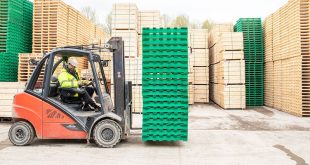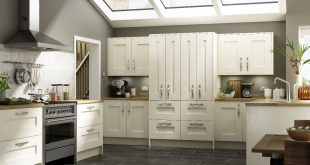We’re only halfway through 2022, yet the events of the last six months could fill up two whole years! From handling the geopolitical ructions in Eastern Europe, government instability, supply chain disruptions, and a looming cost-of-living crisis, the UK has had to navigate choppy waters. Of course, one hopes these are only short terms issues. However, the demand for higher-quality and affordable housing is a long-standing problem, and one which has persisted for far too long.
Worryingly, in the midst of this escalating housing crisis, the Government’s ambition of 300,000 new homes a year by 2025 has been scrapped. Only last month, Levelling Up Secretary Michael Gove [1]appeared to back away from the government’s house-building target, implying the necessary build volumes simply aren’t coming through.
Furthermore, the Prime Minister seemed to confirm the 2019 Conservative Manifesto’s housing pledge could not be guaranteed, when recently questioned at a speech in Blackpool on June 9th.
Whilst the Government has made some efforts over the past decade to try and mitigate this snowballing crisis, exploring and supporting innovative, but expensive, solutions, many of these have been difficult to scale. This has led to a period of relative inertia and navel gazing whilst the crisis deepens.
I believe to progress housebuilding more efficiently, more attention should be given to the tried and tested building methods, which have sadly fallen out of fashion as policymakers chase ‘the next big vote winner’. To this, we should, and must, revisit approaches that have been delivering safe, long-life, and comfortable housing for centuries, particularly, masonry construction.
A diverse range of solutions
Modern Methods of Construction (MMC) have grown in popularity over the past decade, particularly among politicians who see modular building as the silver bullet solution to today’s problems.
Slick and sophisticated marketing should not, however, deceive us. While MMC unquestionably has a role in the housing mix, it cannot solve our stock problems alone. Volumetric output for modular homes is still in its infancy and persistent issues around production and cannot accommodate current (or future) demand.
I sometimes fear our successive governments, the dedicated followers of fashion they are, overlook the materials and approaches which have delivered safe and reliable housing for generations. To this, we need to better showcase how on-site is as relevant today as it has been for centuries.
Moreover, the majority of the housebuilding workforce is trained for on-site construction using bricks, blocks and mortar. With the right strategic approach, and investment made into training up a home-grown workforce, to meet the Brexit shortfall, we could have an army of highly-skilled professionals equipped and ready to re-build out housing programme from the ground up.
It will just take a little imagination, and broader thinking from policy decision-makers, helping them understand that, whilst we should always be looking to evolve our approaches to construction, we shouldn’t be immediately casting aside tried, tested and effective methods.
The safest and most reliable option
Not only is masonry construction scalable, but bricks, blocks and mortar are also non-combustible. Safety and quality have, rightly, become essential for contemporary residential specification, to prevent catastrophic events like Grenfell from occurring again.
Masonry construction embodies both these non-negotiable criteria, significantly reducing fire risks and guaranteeing structural integrity. Significantly, masonry also releases no harmful droplets or harmful VOCs (Volatile Organic Compounds), offering the maximum amount of protection in the worst-case scenario.
And its ability to safeguard homeowners and occupants doesn’t end there. With greater temperature fluctuations and extreme weather events caused by climate change, robustness and reliability are vitally important today.
Masonry offers high resistance against rotting, pests, weather, and natural disasters such as flooding or hurricanes. Perhaps the biggest ‘pro’ is this: Masonry buildings have longer lifespans than any other building type.
Sustainability drive
From a sustainability perspective, developers striving to meet emissions targets can also be confident they’re making a low-carbon choice with masonry.
In line with the incoming Future Home Standards, which stipulate new residential properties need to achieve 30% lower emissions than current levels, masonry can offer a solution, especially when specified in conjunction with a fabric-first approach.
For example, when used in a cavity wall system, alongside the latest insulation boards and graphene ties, masonry’s thermal performance qualities are instantly recognised. Correctly built, a robust cavity wall reduces the requirement for mechanical HVAC, instantly lowering emissions and optimising energy efficiency. Not only does it mean environmental savings, but bricks also provide more comfortable homes and lower energy bills, helping to mitigate the current cost of living crisis whilst achieving greener homes.
That’s not all. When complemented with the latest technology, such as Solar PV, which can provide a green source of electricity, and smart-controlled natural ventilation systems, which can improve indoor air quality (IAQ), you can achieve homes as near to zero carbon as possible.
As you can see, masonry is a material category that remains perfectly suited to modern requirements while simultaneously providing a scalable solution to the current housing crisis. This guarantees sustainable, comfortable, and affordable homes.
MMC may appear to be an appealing proposition with significant advantages, but it is far from the only tool available. The construction industry is and should be varied. Certainly, both on-site and off-site construction have a role to play in the future of British housing. Losing the masonry skills base and well-established local product supply is not the answer.
[1] https://www.bbc.co.uk/news/61407508
 Builders Merchants Journal – BMJ Publishing to Builders Merchants and the UK merchanting industry for more than 95 years
Builders Merchants Journal – BMJ Publishing to Builders Merchants and the UK merchanting industry for more than 95 years



